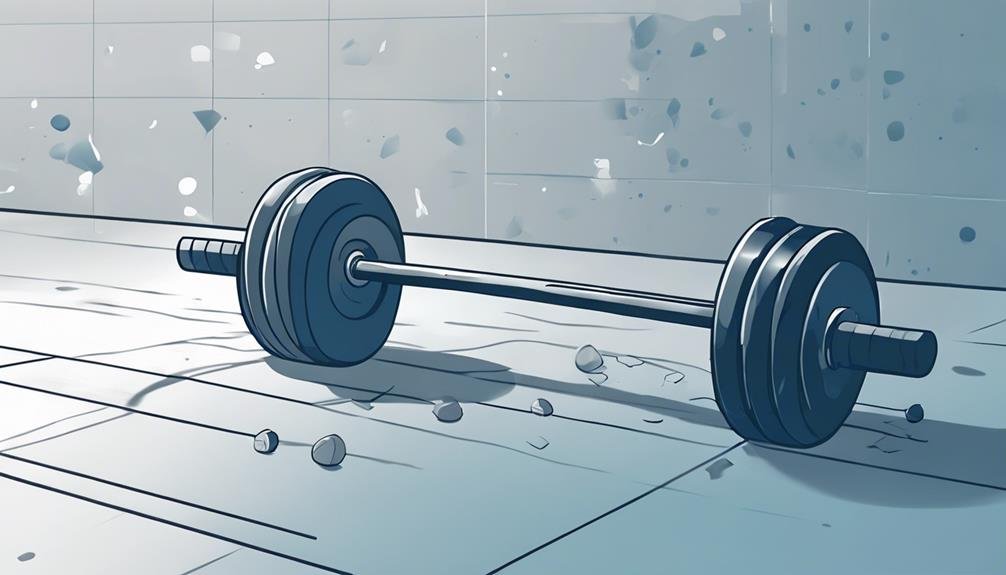3 Best Low Testosterone Signs for Men Over 40
If you're over 40, watch for these three signs of low testosterone. First, you might experience decreased energy levels. It's common to feel tired even after a full night's sleep, making daily tasks harder. Next, reduced muscle mass is another indicator. You could struggle to maintain muscle despite regular workouts and notice slower recovery times. Finally, pay attention to changes in libido and mood. A drop in sexual interest may accompany feelings of irritability or anxiety. Recognizing these symptoms is crucial for your health, and there's more to explore about managing them effectively.
Key Takeaways
- Significant drop in energy levels, leading to persistent tiredness and reduced motivation for daily activities.
- Noticeable decline in muscle mass, making it difficult to maintain or build muscle despite regular workouts.
- Reduced libido, resulting in decreased interest in sexual activity and potential feelings of frustration.
- Mood changes, including increased irritability, anxiety, and depression, impacting relationships and overall well-being.
Decreased Energy Levels
Many men over 40 often notice a significant drop in their energy levels, which can be a telltale sign of low testosterone.
You might find yourself feeling fatigued even after a full night's sleep, struggling to keep up with daily tasks or enjoying activities you once loved. This persistent tiredness can affect your productivity and overall quality of life.
You may feel less motivated to exercise or engage socially, further compounding the issue.
It's important to pay attention to these changes, as they can indicate hormonal imbalances that need addressing.
If you recognize this pattern in your life, consider discussing your symptoms with a healthcare professional to explore potential solutions and regain your liveliness.
Reduced Muscle Mass

A noticeable decline in muscle mass can be a key indicator of low testosterone in men over 40. If you've found it harder to maintain or build muscle despite regular workouts, it might be time to reflect on your testosterone levels.
As testosterone plays an essential role in muscle development, a drop in this hormone can lead to a reduction in muscle strength and size. You may notice that you're not recovering as quickly after workouts or that your performance in the gym isn't what it used to be.
This change isn't just cosmetic; it can impact your overall health and well-being. Keeping an eye on your body's signals can help you address low testosterone before it greatly affects your fitness and well-being.
Low Libido and Mood Changes
Experiencing reduced muscle mass can often accompany a decline in libido and mood changes, which are common signs of low testosterone in men over 40.
You might find that your interest in sex diminishes, making intimate moments feel less appealing. This drop in libido can be frustrating and may lead to feelings of inadequacy.
Mood changes are also prevalent; you could notice increased irritability, anxiety, or even depression. These emotional shifts can affect your relationships and overall quality of life.
If you're experiencing these symptoms, it's crucial to consult with a healthcare professional. They can help determine the cause and suggest appropriate treatments to improve your testosterone levels, libido, and mood, restoring balance and vibrancy to your life.
Questions
Can Low Testosterone Affect Sleep Quality in Men Over 40?
Yes, low testosterone can definitely affect your sleep quality. If you're experiencing insomnia or frequent waking, it's worth considering hormone levels. Addressing this issue can help improve your overall sleep and well-being.
Are There Dietary Changes That Can Help Increase Testosterone Levels?
Did you know that nearly 40% of men may experience low testosterone? You can boost your levels by incorporating zinc-rich foods, healthy fats, and vitamin D into your diet. It's a simple yet effective approach!
How Does Stress Impact Testosterone Levels in Older Men?
Stress can greatly lower your testosterone levels by increasing cortisol, which disrupts hormone balance. It's essential to manage stress through relaxation techniques, exercise, or hobbies to maintain healthier testosterone levels and overall well-being.
What Role Does Exercise Play in Managing Low Testosterone Symptoms?
Exercise boosts your testosterone levels, improves mood, and enhances energy. By engaging in regular physical activity, you're not just managing low testosterone symptoms; you're also promoting overall health and well-being. Stay active for better results!
Are There Natural Supplements to Boost Testosterone Safely?
Think of natural supplements as a garden; you've got to cultivate them wisely. Zinc, vitamin D, and fenugreek can help boost testosterone safely, but always consult with your healthcare provider before starting any new regimen.
Conclusion
If you're feeling fatigued, flabby, or find your feelings fluctuating, it might be time to check your testosterone levels.
Recognizing these signs early can help you reclaim your energy and vigor.
Don't let decreased energy, diminished muscle, or a dip in desire drag you down.
By addressing low testosterone, you can boost your wellbeing and bounce back to a more vibrant, energetic life.
Stay proactive, and prioritize your health for a more powerful future!

